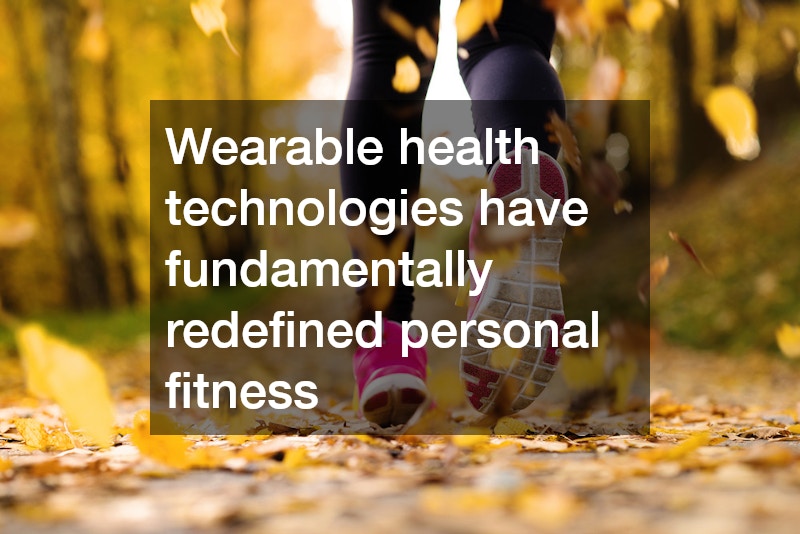Wearable health technologies have seen an exponential rise in popularity over the last decade. The availability and affordability of these devices have made them accessible to a broad audience, transforming the way individuals engage with their health and fitness. Initially, health monitor devices were simple pedometers that counted steps, yet today, they are sophisticated gadgets offering a plethora of metrics. This evolution illustrates the dynamic nature of technology and how it adapts to our needs, emphasizing the importance of personalized health data in today’s society.
For many, these devices serve as a constant companion, offering insights that encourage healthier lifestyle choices.
From simply counting steps and calories to monitoring sleep patterns and heart rates, the capabilities of modern health monitor devices are extensive. These devices can analyze data and provide insights that were once only accessible through professional medical equipment. With features such as real-time feedback, users can adjust their activities to optimize their physical well-being. The affordability and portability of wearable devices make them a practical component of both casual fitness routines and serious athletic training. They empower users by offering comprehensive health data at their fingertips, fostering a deeper understanding of their personal fitness levels.
Health monitor devices have not only changed fitness landscapes but also inspired a shift in the cultural narrative surrounding health. By gamifying fitness goals, these devices have injected an element of fun into staying healthy, pushing individuals to surpass personal records. The ability to share achievements on social media platforms has created a community-driven approach to fitness, motivating users through friendly competition. As a result, wearable health technology doesn’t just improve physical health; it builds connections and challenges social norms about fitness. This cultural shift underscores a collective move toward integrating technology in everyday activities to bolster personal well-being.
Impact on Personal Fitness and Well-being
Wearable health technologies have fundamentally redefined personal fitness by providing users with unprecedented insights into their daily activities. With the help of these devices, individuals can now track and analyze their health data over time, allowing for a more informed approach to fitness goals. By offering tailored feedback, these devices can suggest personalized fitness plans, ensuring that workouts are both safe and efficient. This capability to customize fitness experiences creates a sense of ownership and participation in one’s health journey, which can lead to more sustainable lifestyle changes. Moreover, the accountability features of these devices help reinforce positive habits, leading to long-term health benefits.
The integration of health monitor devices into everyday life has also facilitated a focus on holistic well-being, where mental and physical health are given equal importance. By alerting users about stress levels or encouraging mindfulness practices, these devices aid in promoting mental wellness often overlooked in traditional fitness regimes. The insights derived from consistently tracking health parameters assist in identifying patterns, promoting preventative healthcare strategies. Real-time alerts and reminders to stand, stretch, or hydrate integrate gentle cues into the day, encouraging healthier routines. For many, this comprehensive approach to health has transformed fitness from a chore into a lifestyle.
Another significant impact of wearable health technologies on personal fitness is the democratization of health data. Users no longer have to rely solely on medical professionals for access to critical health information; instead, it can be easily obtained through a health monitoring device. This shift empowers individuals to take a more proactive role in their health management, leading to increased health literacy. The ease of access to such data also fuels curiosity and engagement, encouraging individuals to explore new dimensions of their fitness journeys. As a result, individuals are better equipped to make informed decisions, paving the way for a more resilient and aware society.
Future of Wearable Health Technologies
As technology continues to advance at a rapid pace, the future of wearable health technologies promises even more innovations. Breakthroughs in sensor technology are likely to offer even more detailed biometric data, raising the potential for preventative healthcare measures. Future devices could monitor vital signs with clinical accuracy, detecting diseases or health risks at an early stage. With the potential integration of artificial intelligence, these devices could provide real-time diagnoses and personalized health recommendations. Such advancements signify a shift towards a preventative rather than reactive approach to personal health, revolutionizing the healthcare industry.
The incorporation of artificial intelligence and machine learning could enable these devices to learn from a user’s habits and make suggestions for healthier lifestyle choices. This development could lead to personalized coaching within the device, adapting fitness regimes based on past performances and future goals. The potential for collaboration with healthcare providers ensures that the data from wearable tech will become part of broader health management strategies. Through integration with electronic health records, wearable devices could offer seamless health monitoring and contribute to comprehensive health care plans. This interconnected approach could transform how we perceive and approach preventative health care.
The evolution of wearable technologies also raises questions about data security and privacy, challenging developers to address these crucial issues. As these devices gather sensitive health information, ensuring this data remains private and secure is paramount. Industry experts are continually working on secure data transmission methods and consent-driven data sharing to protect users. Despite these challenges, the potential benefits of integrating wearable technology into routine health practices are tremendous. As society embraces these innovations, wearable health technology could play a crucial role in shaping healthier, more informed communities, offering a promising glimpse into the future of fitness and health care.






